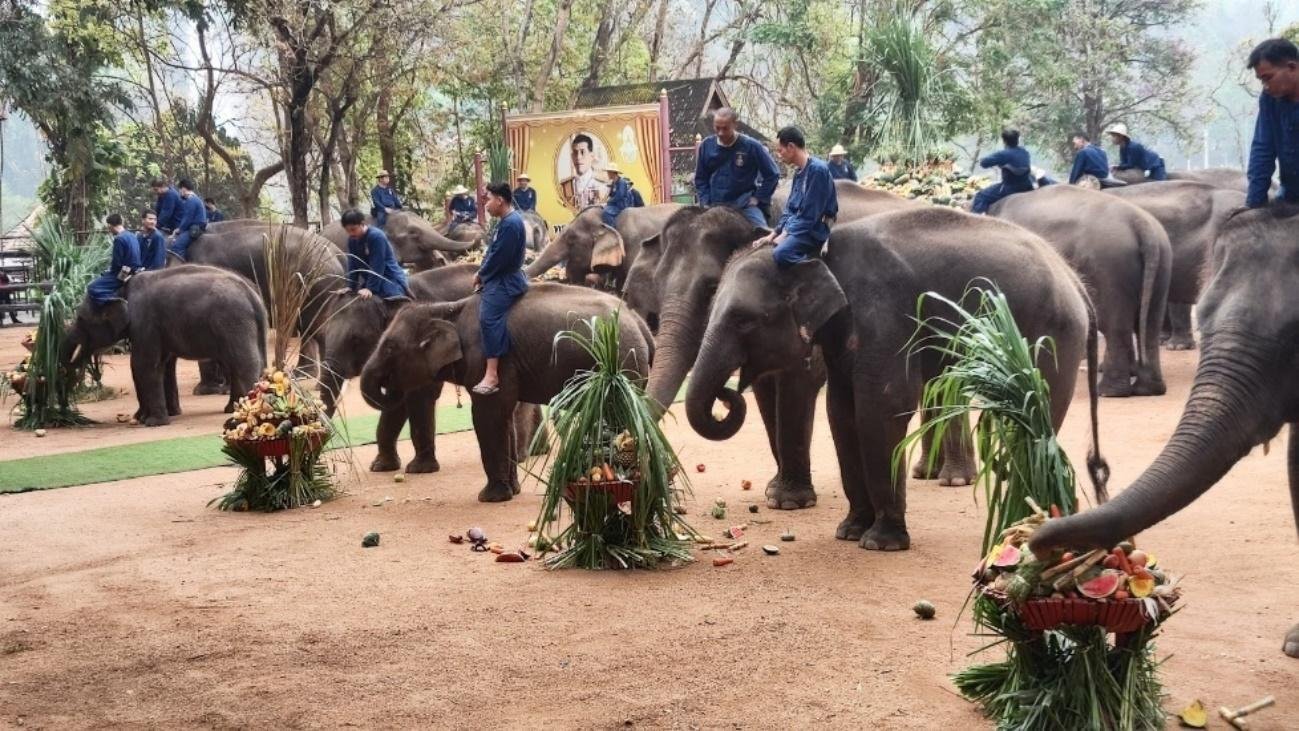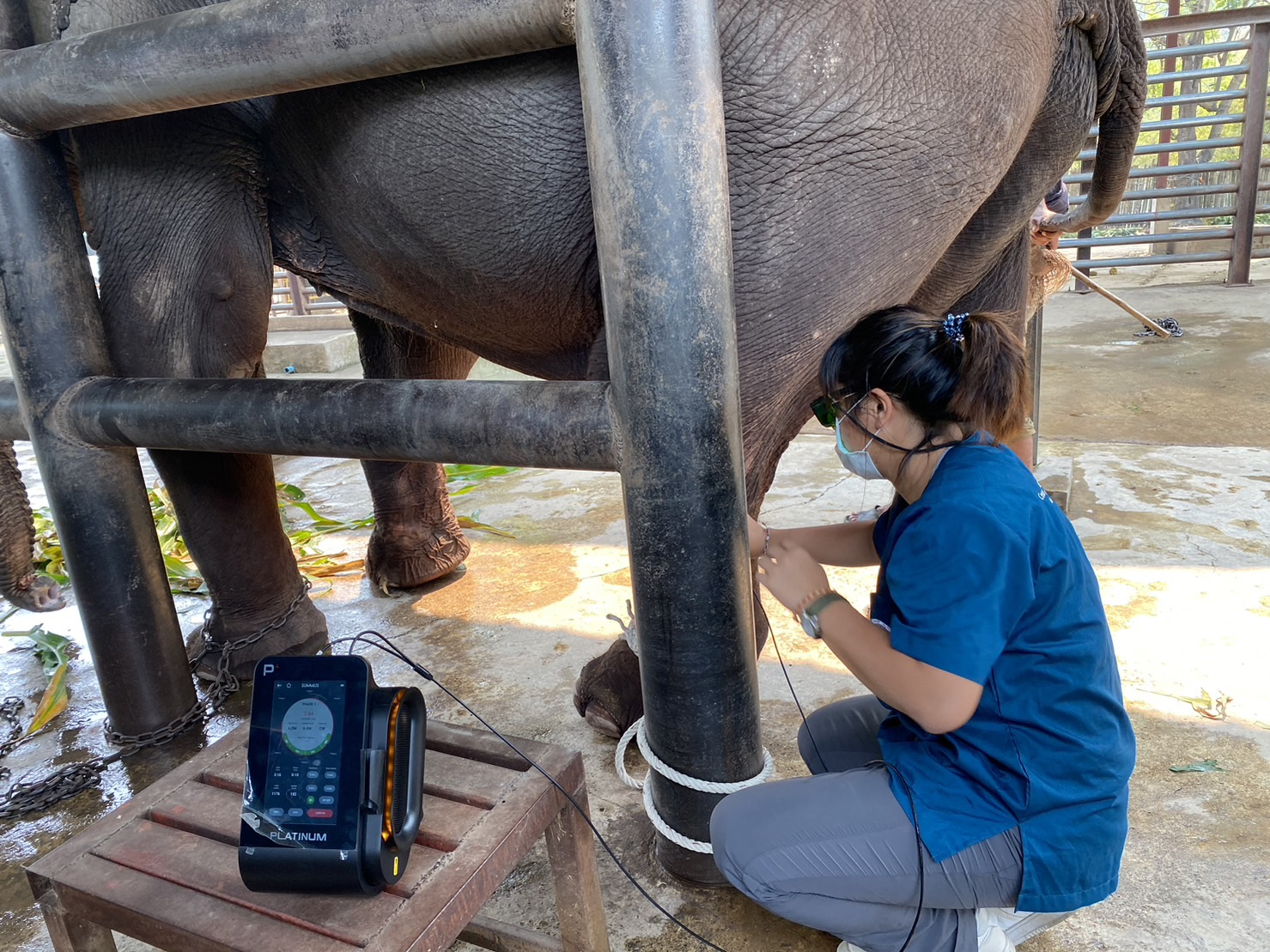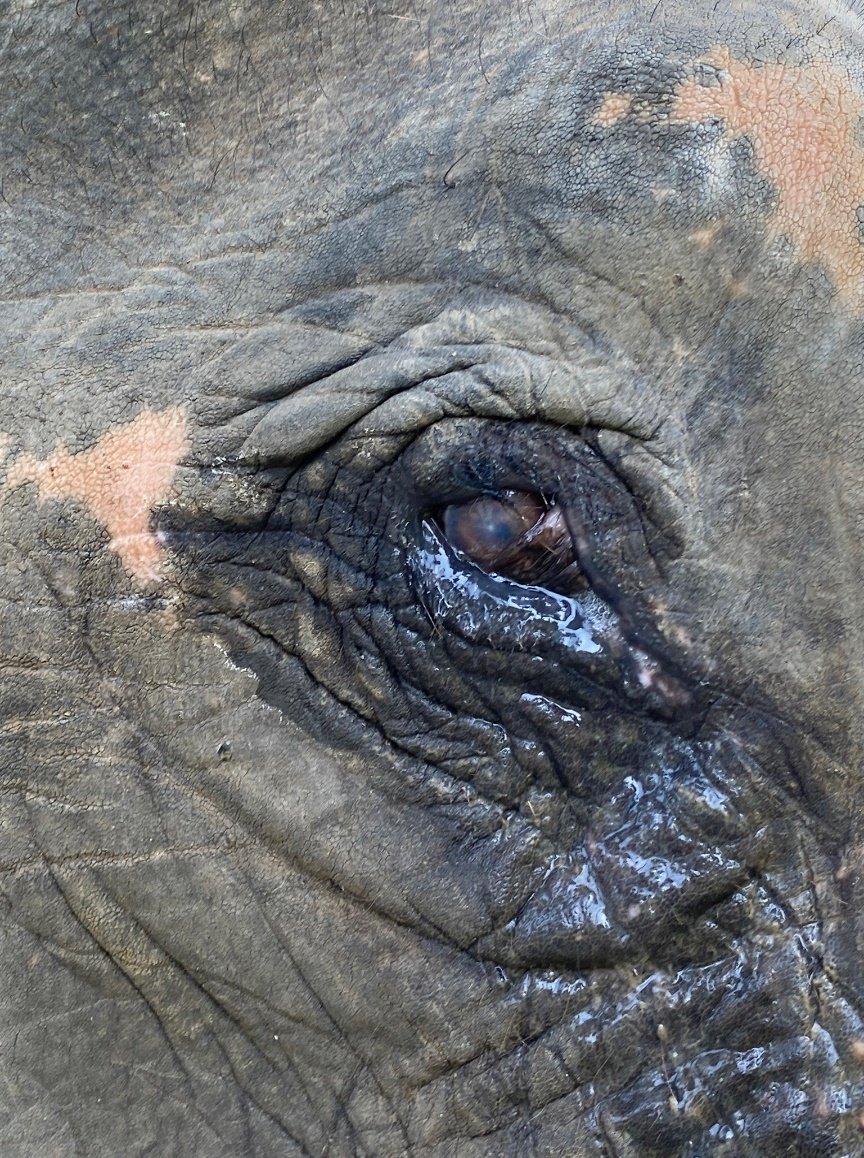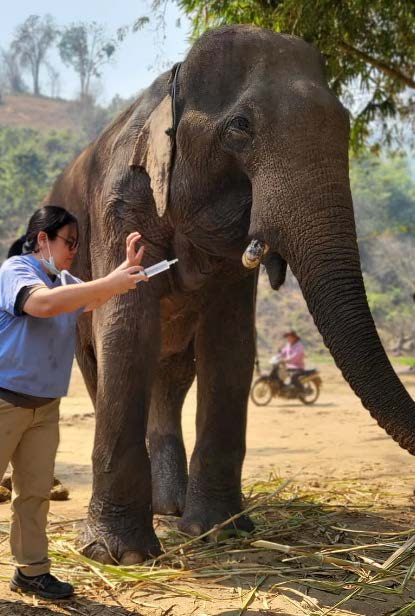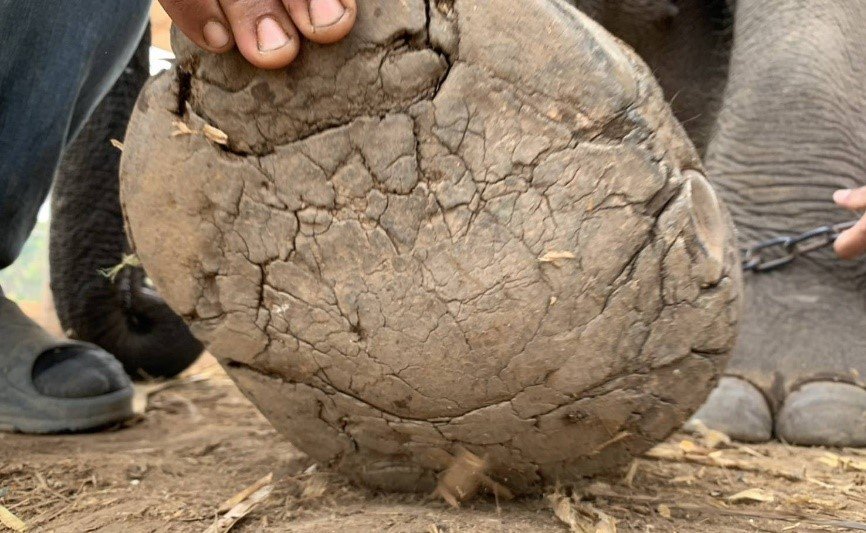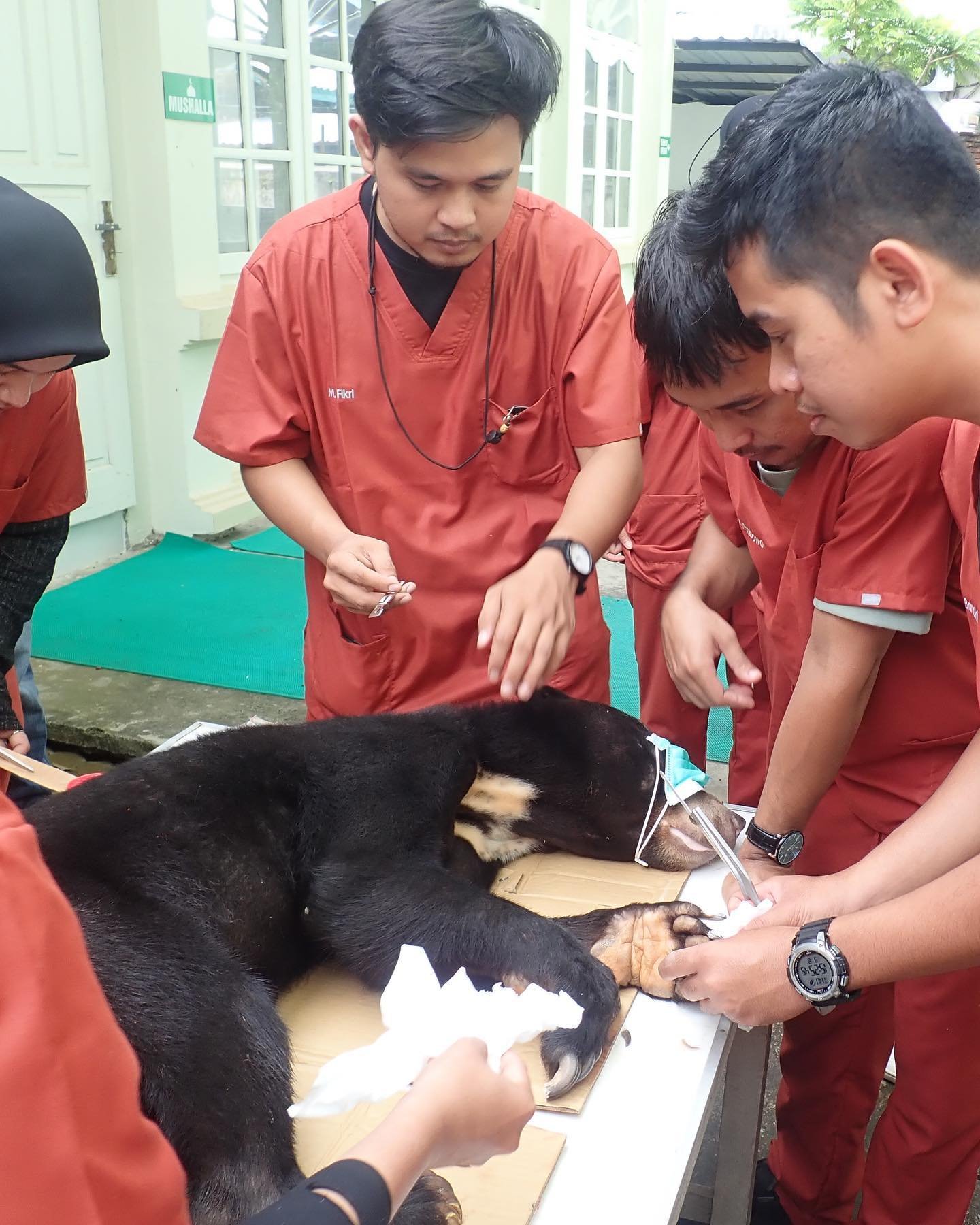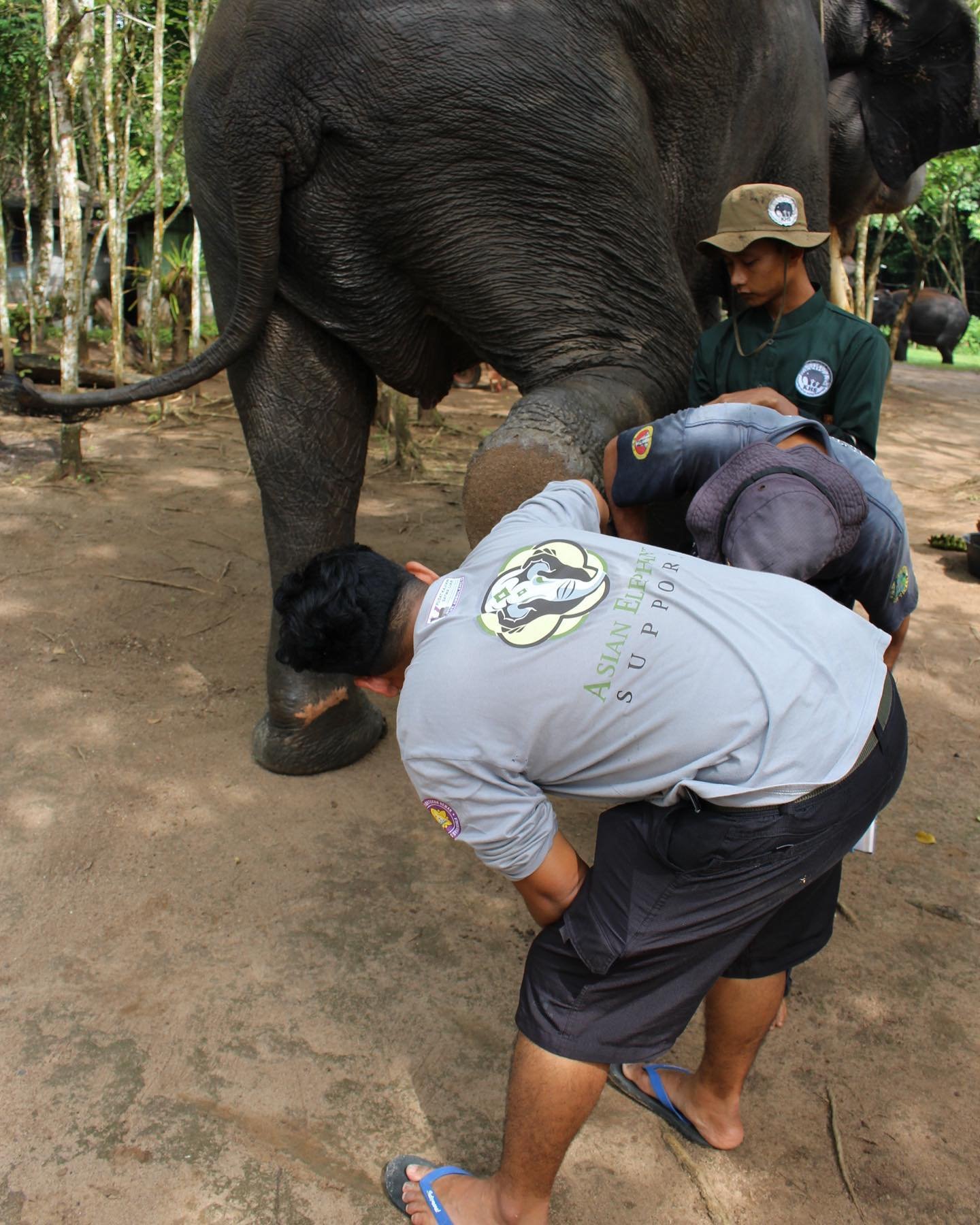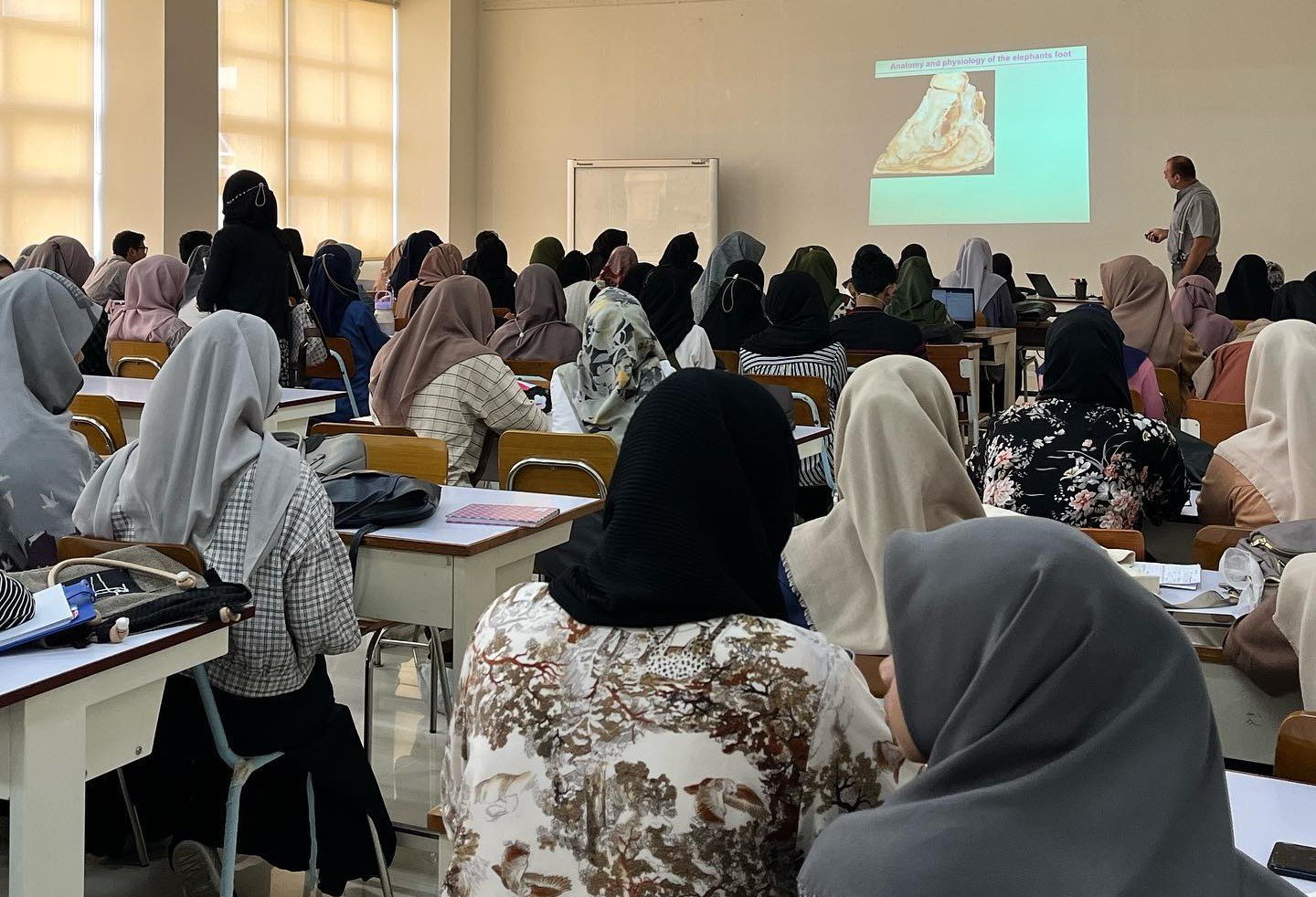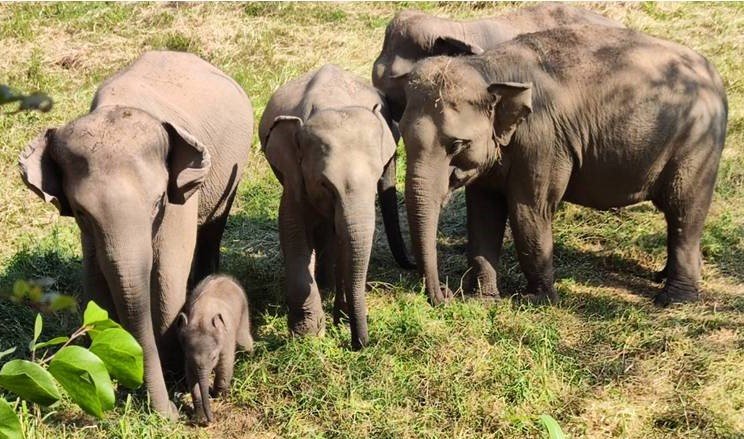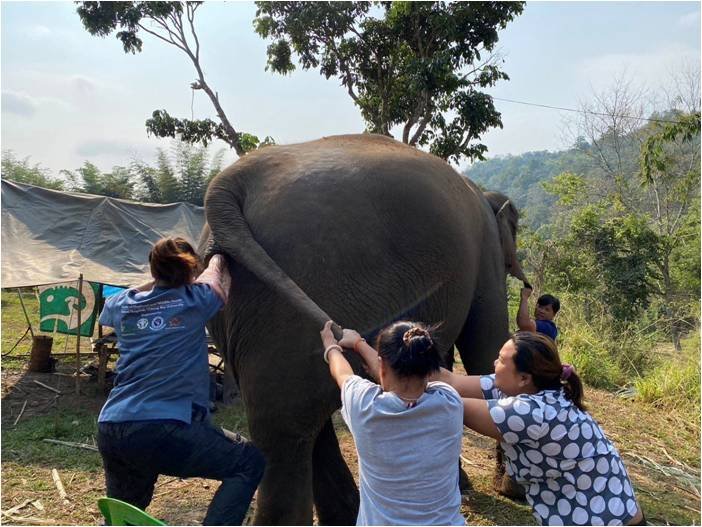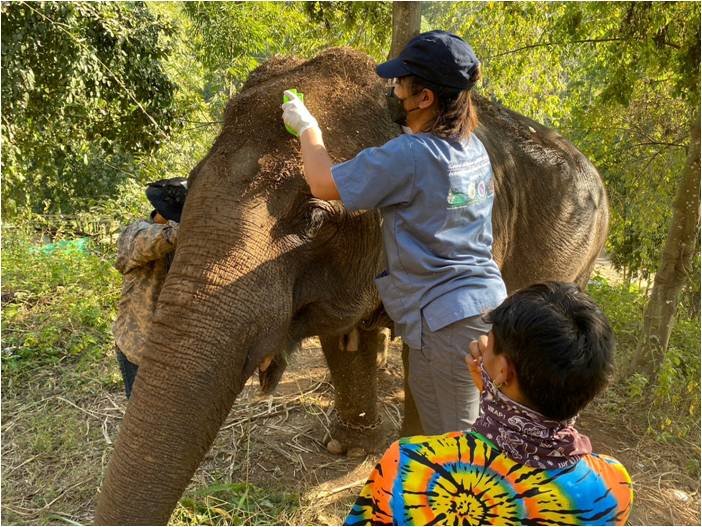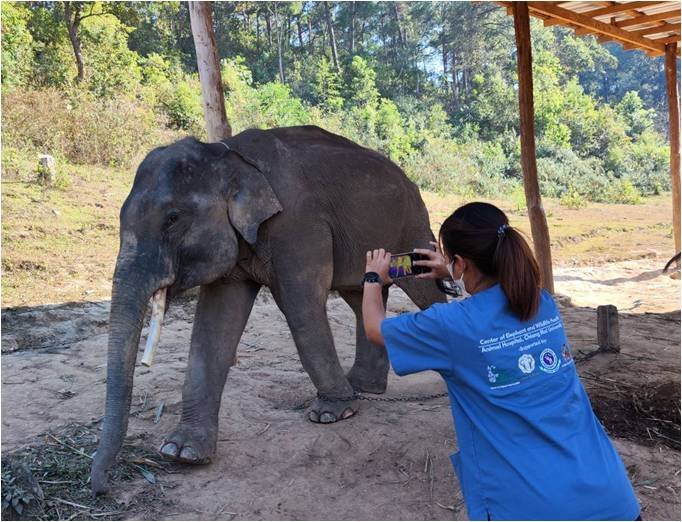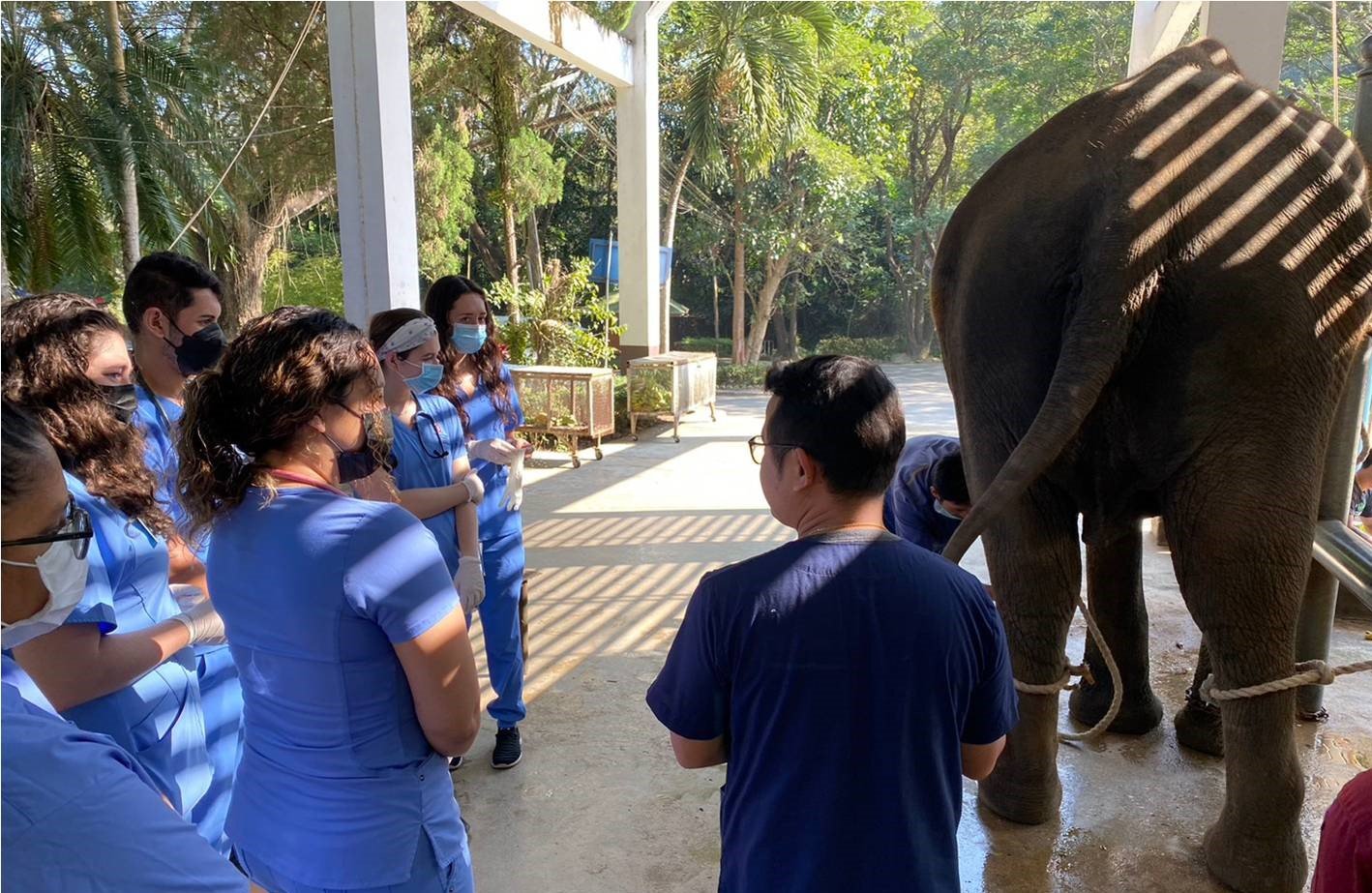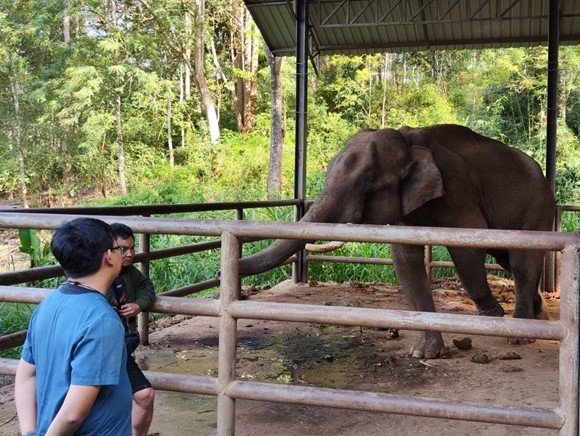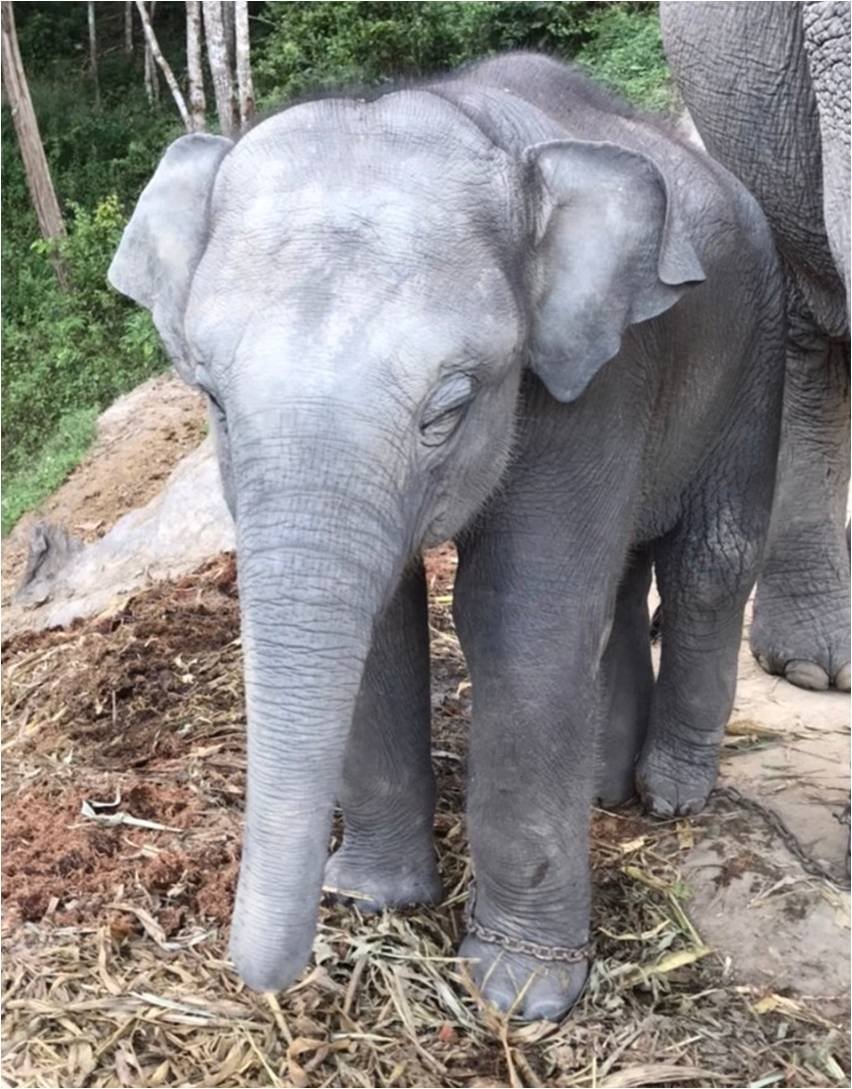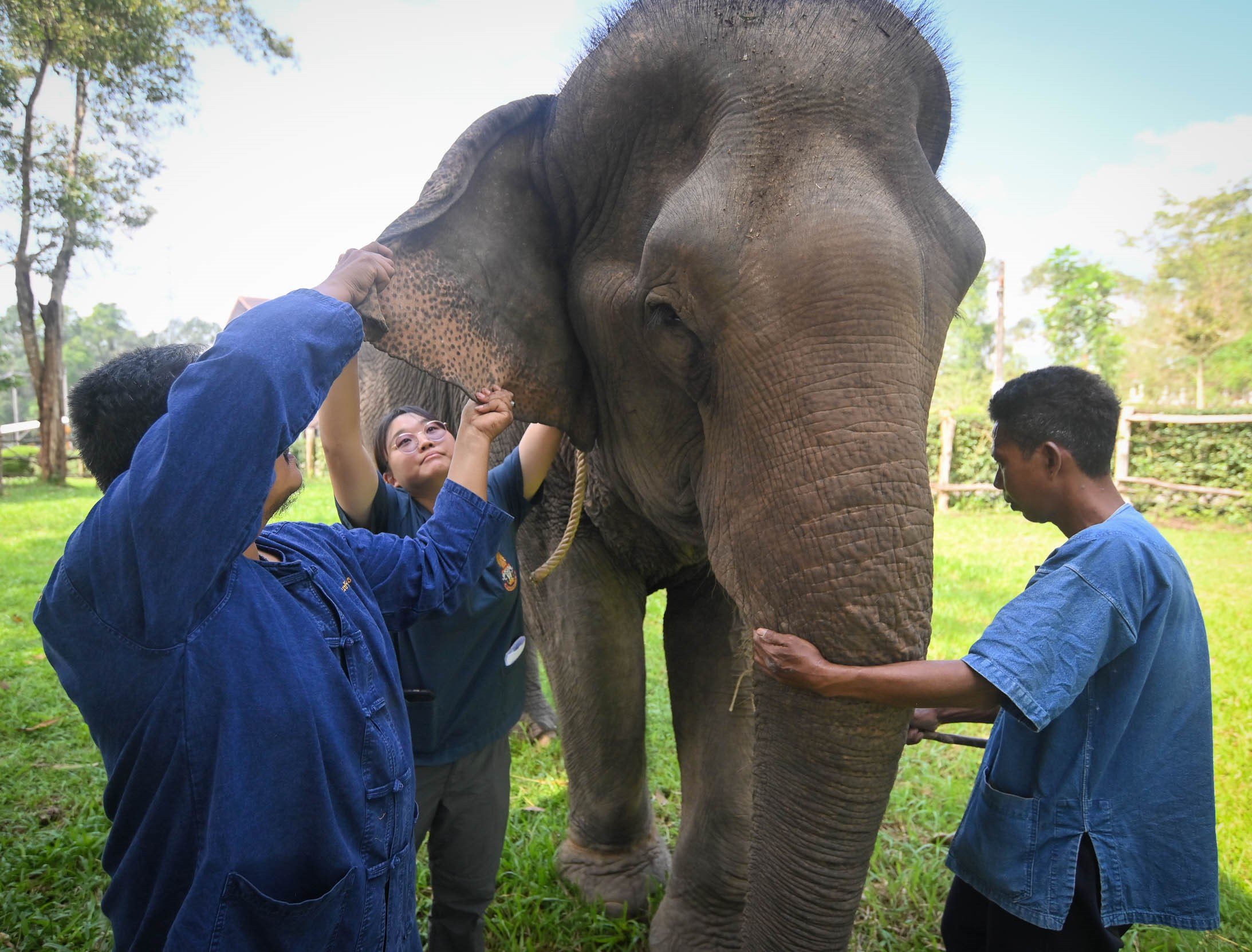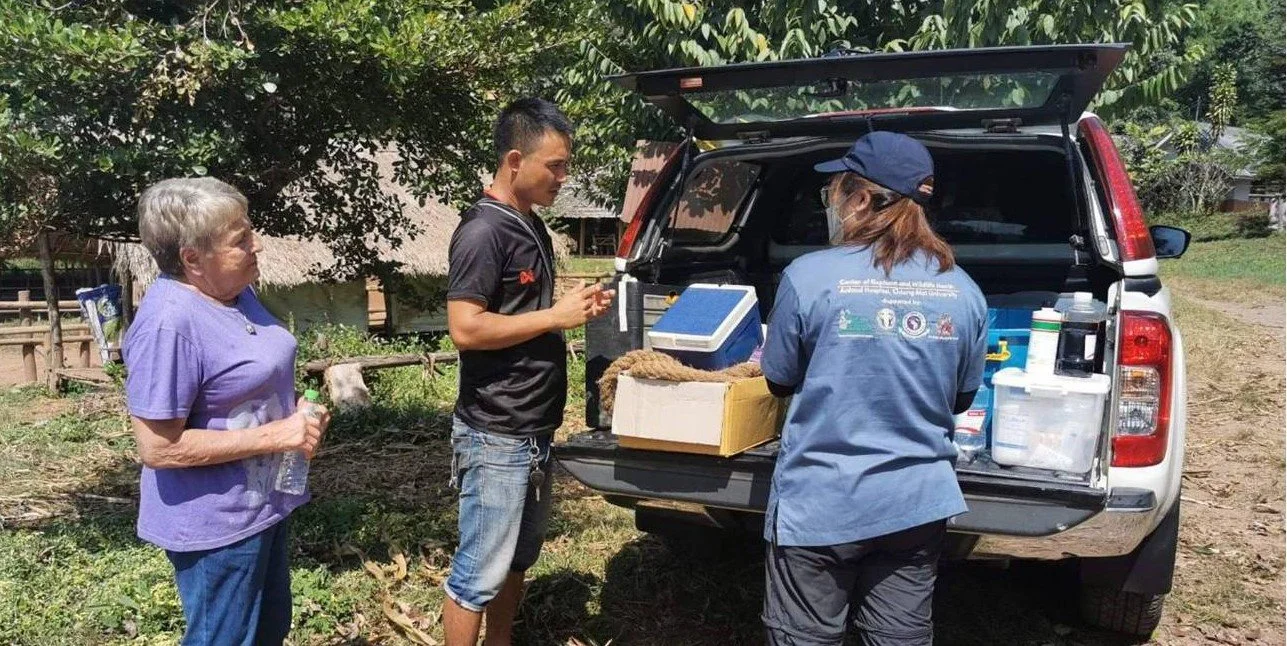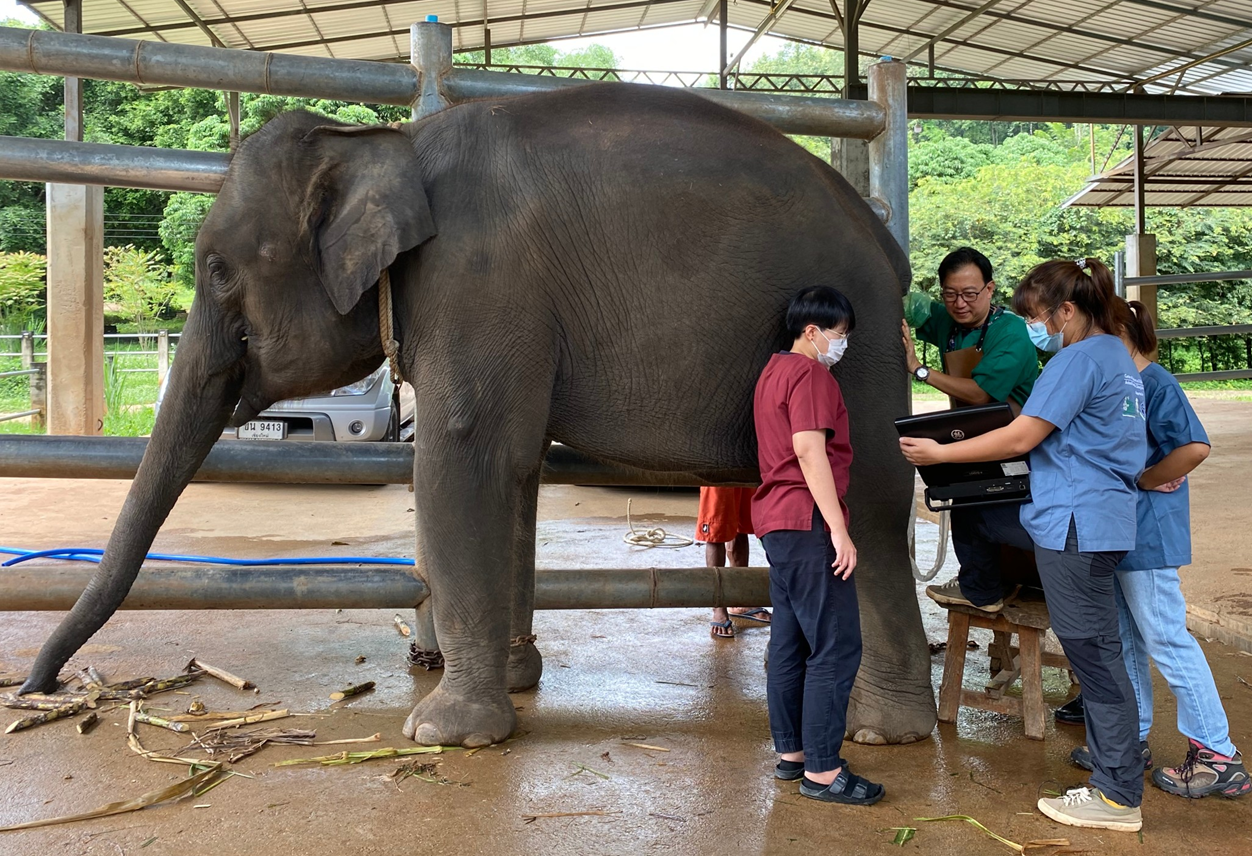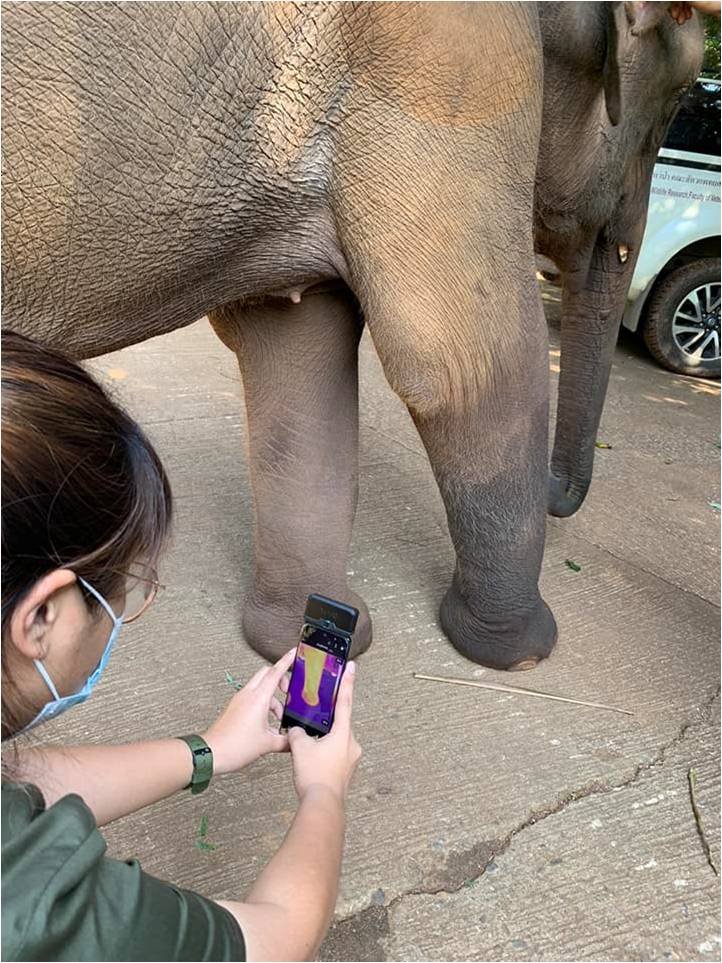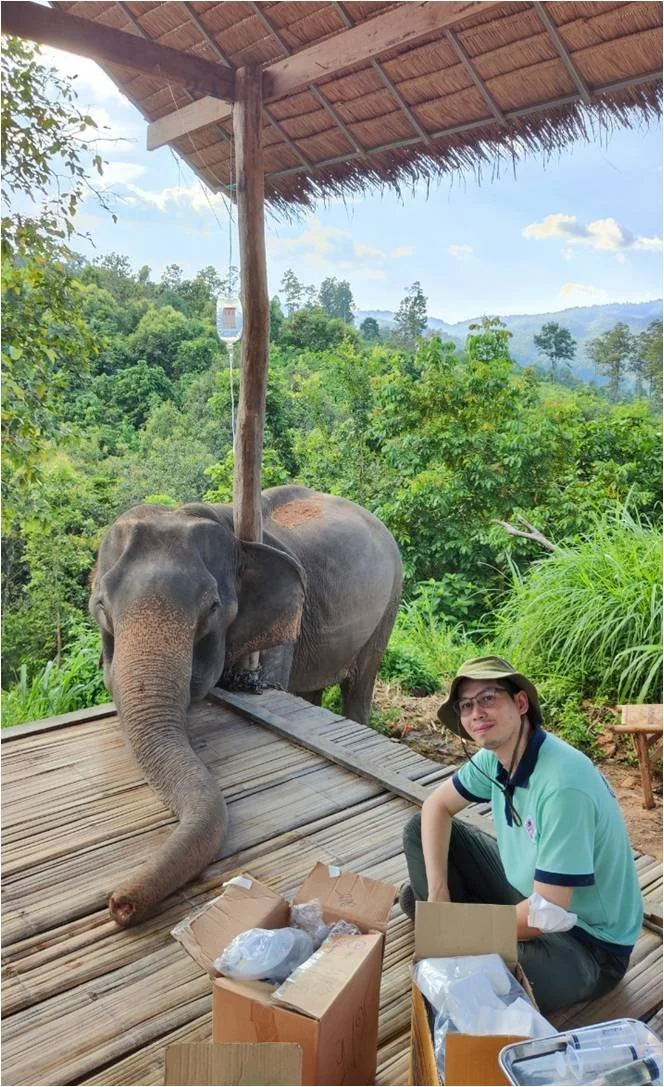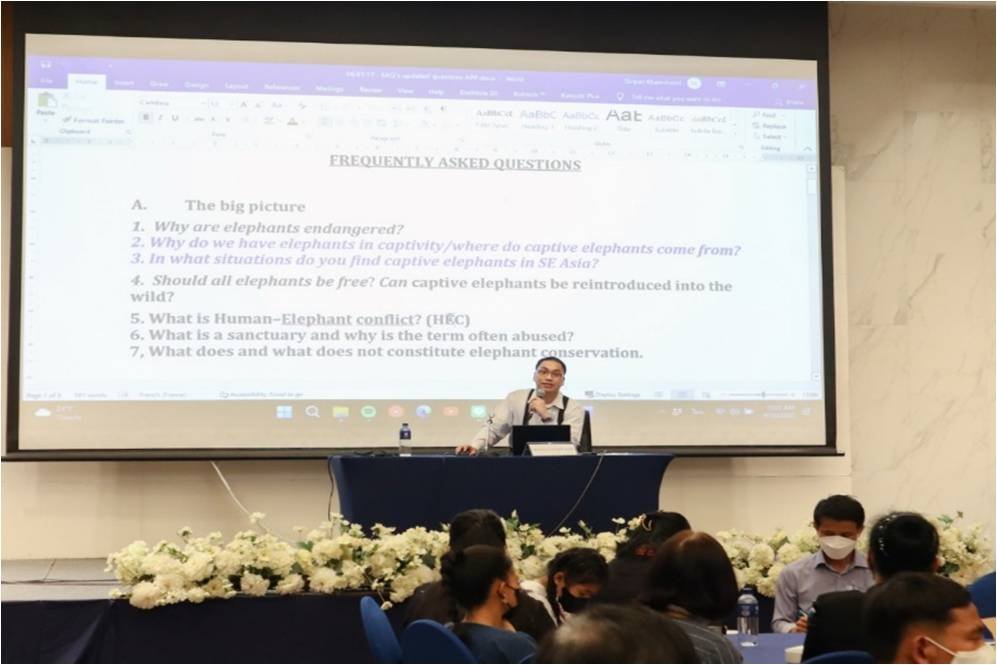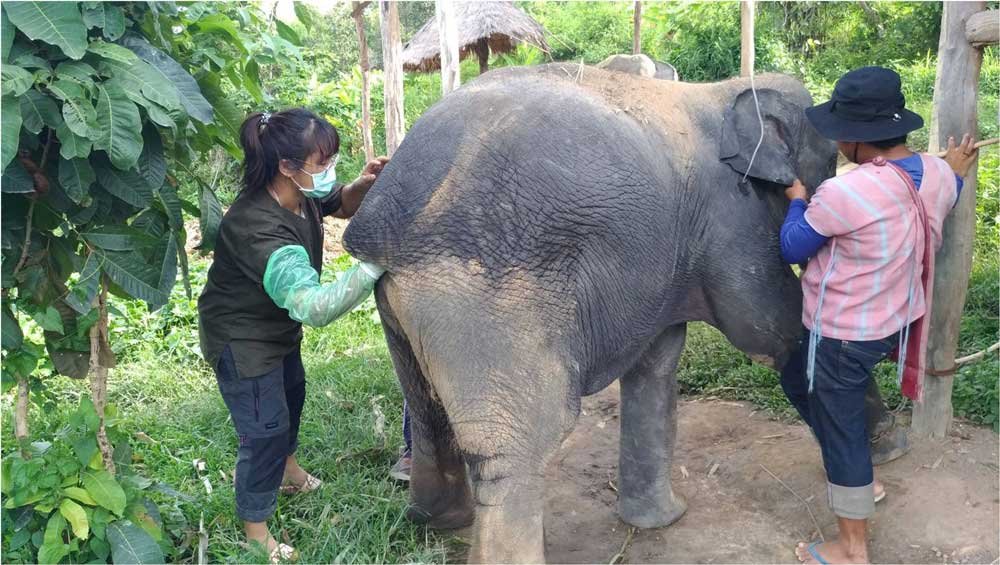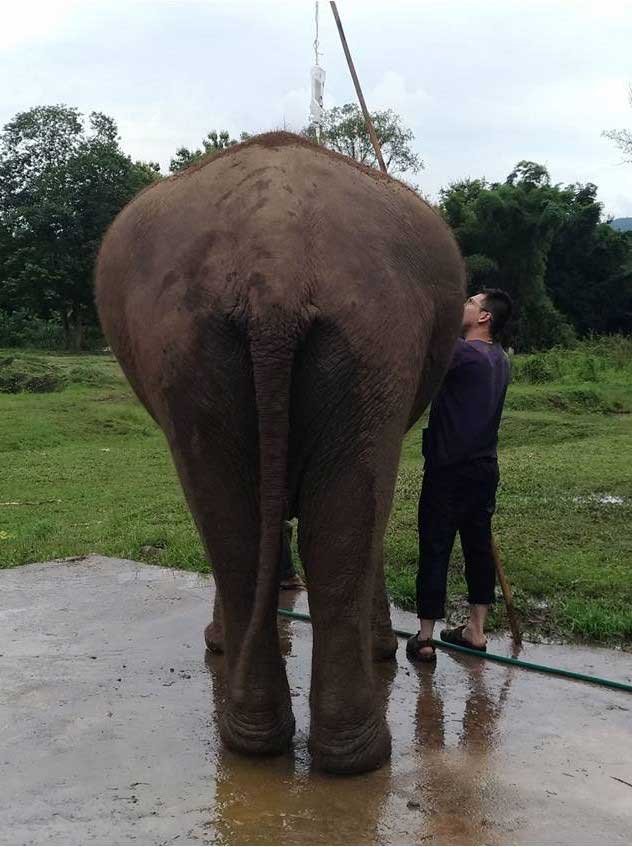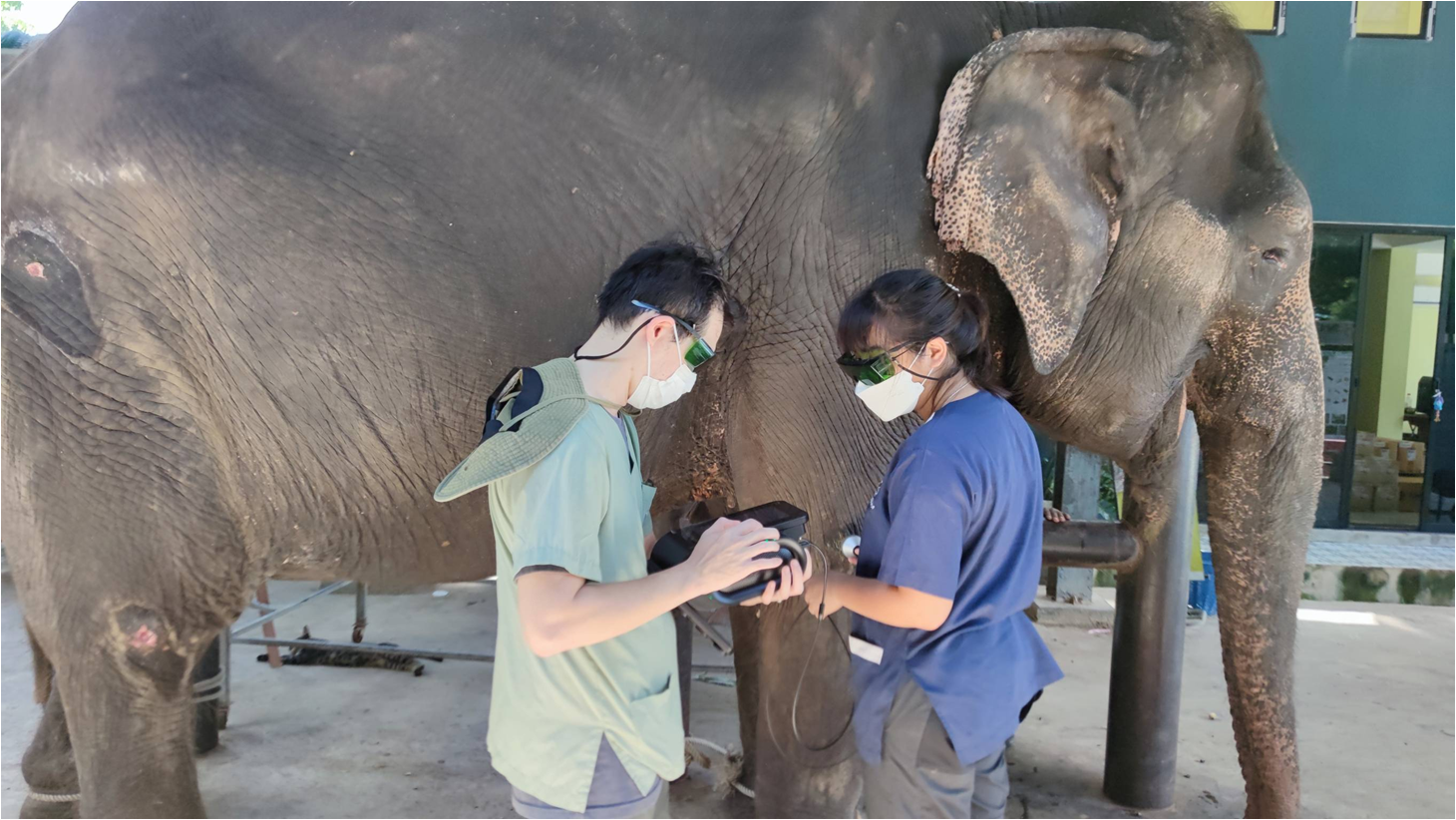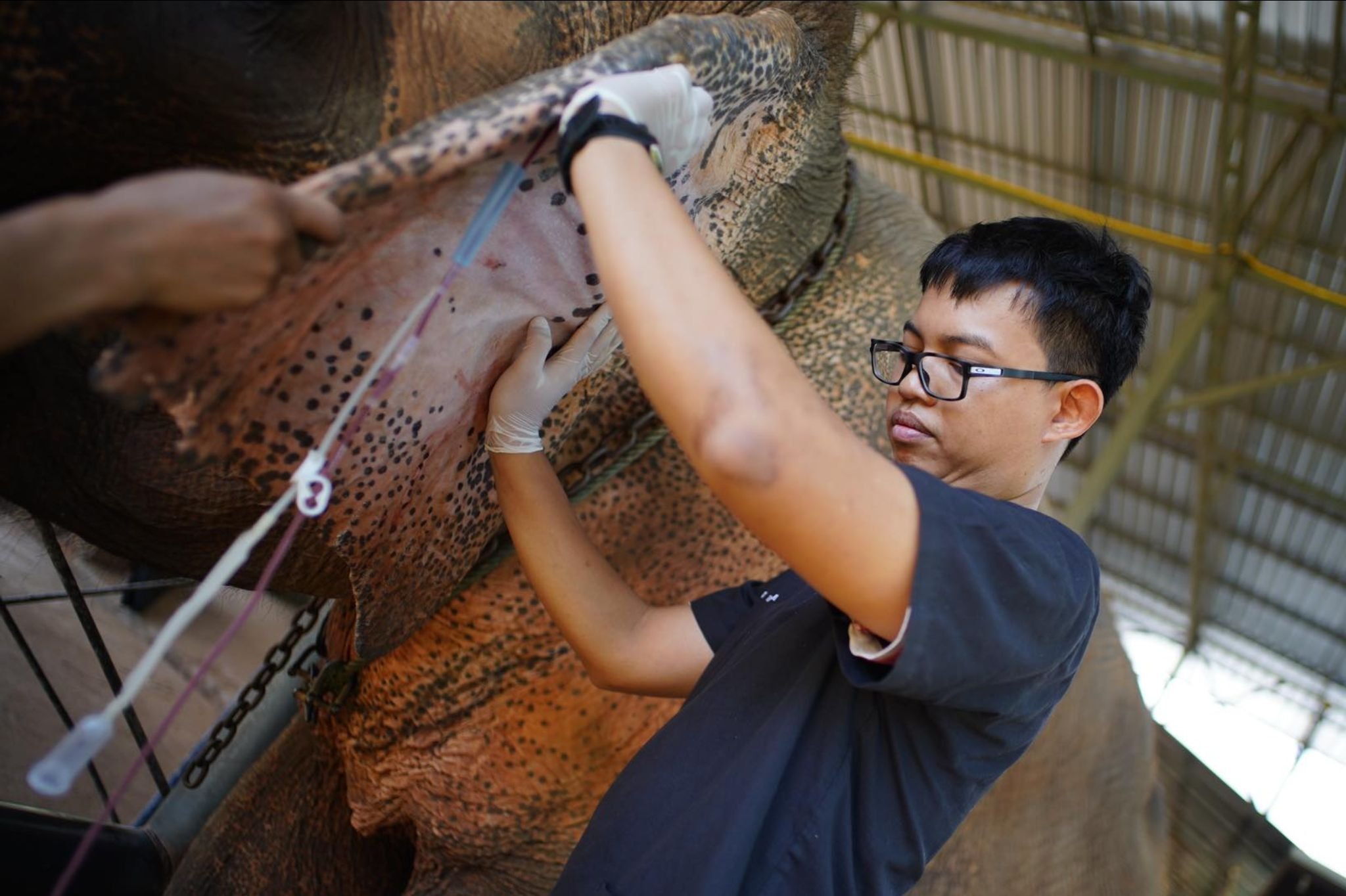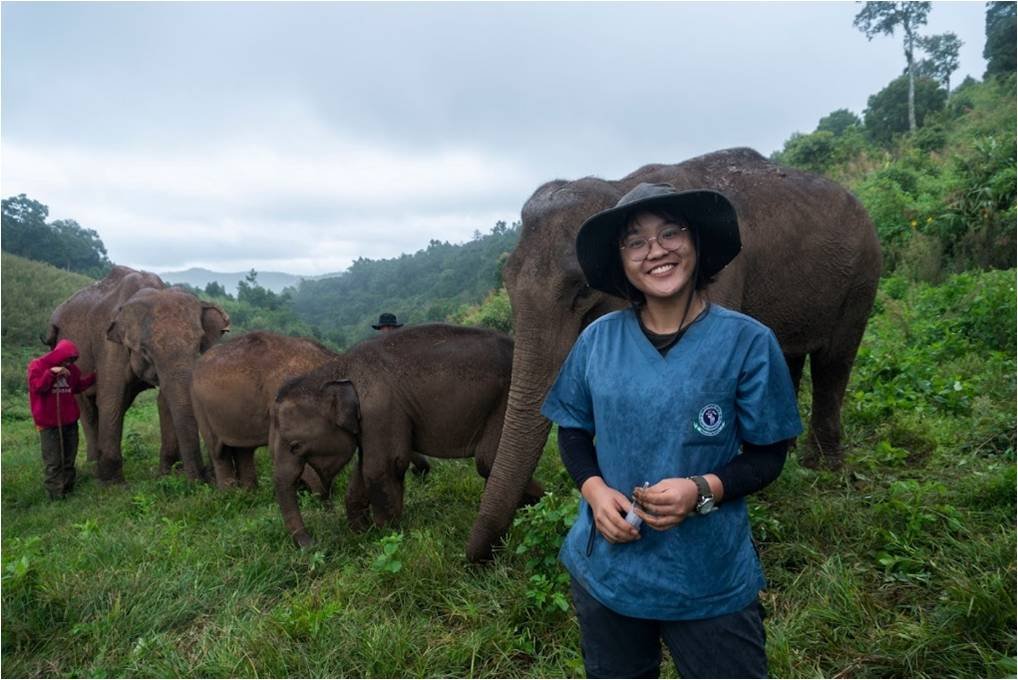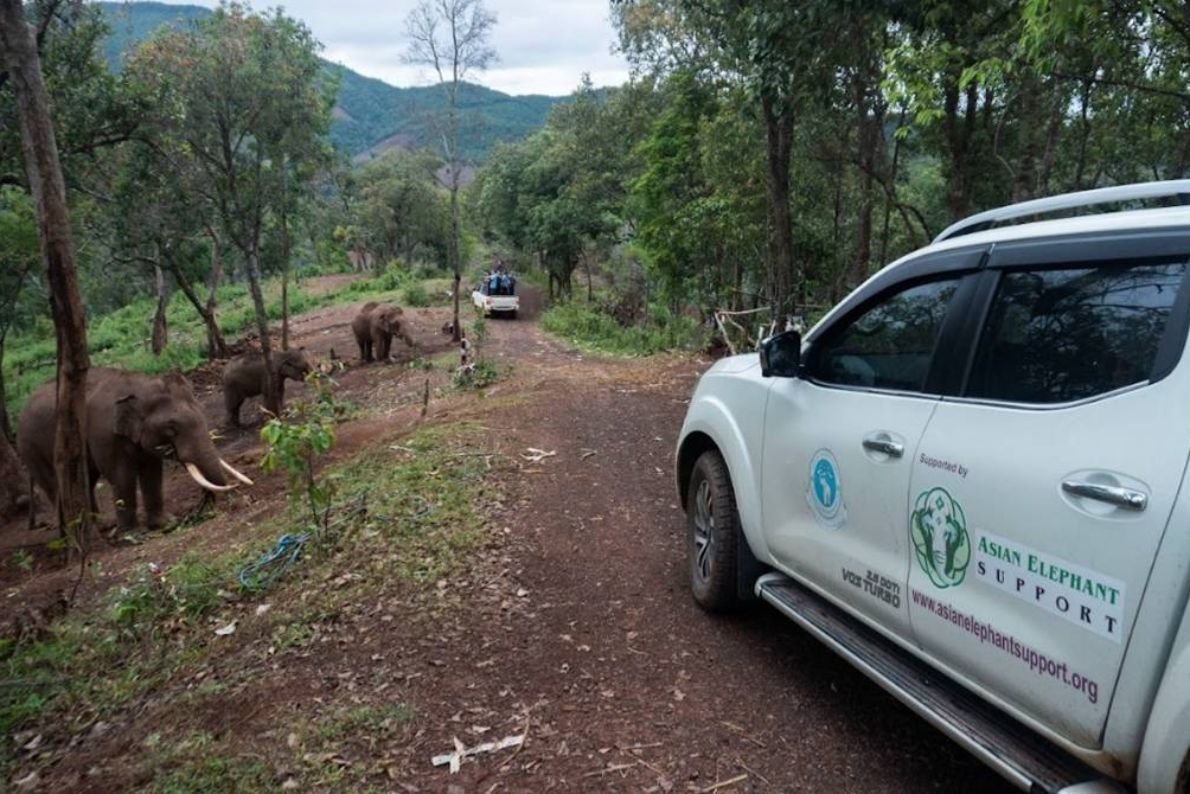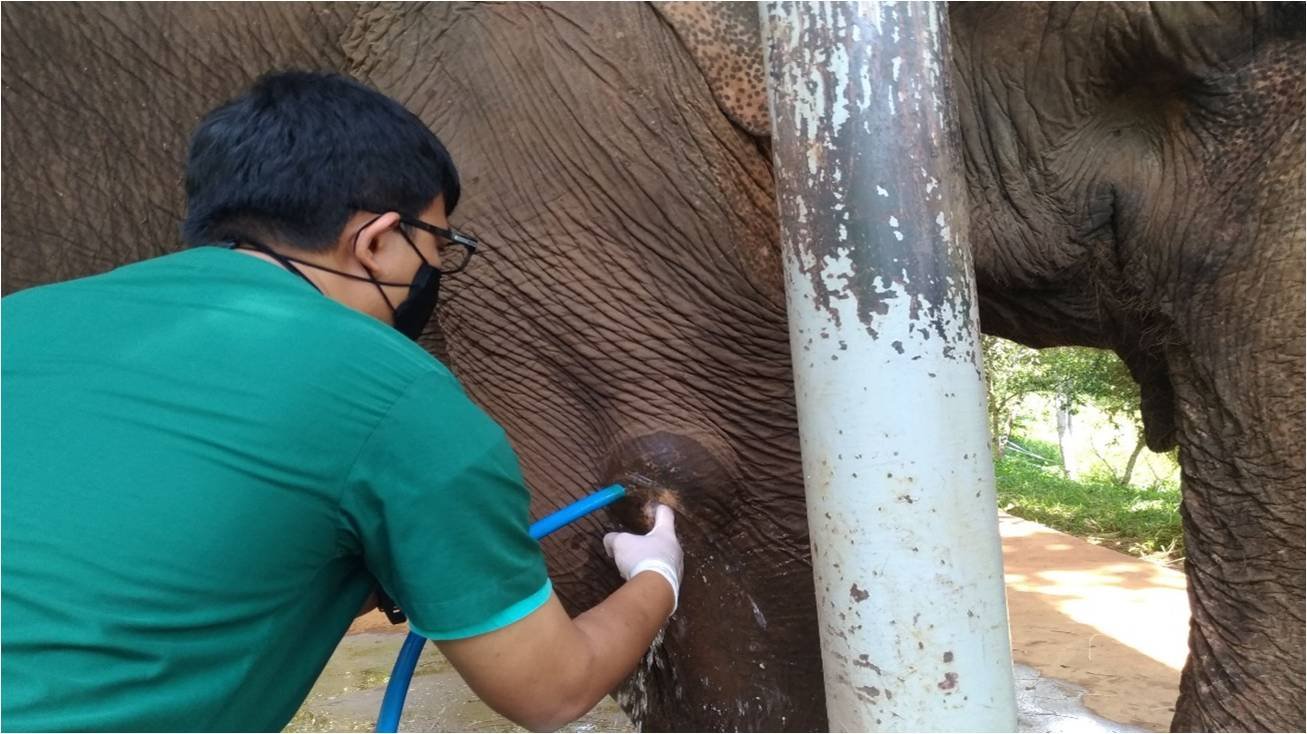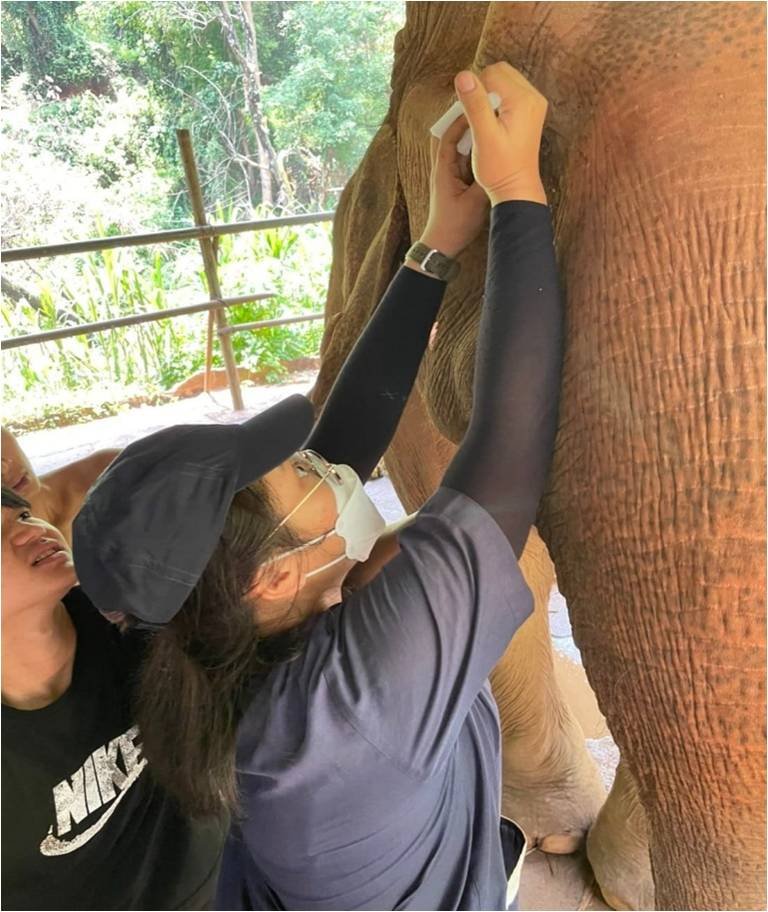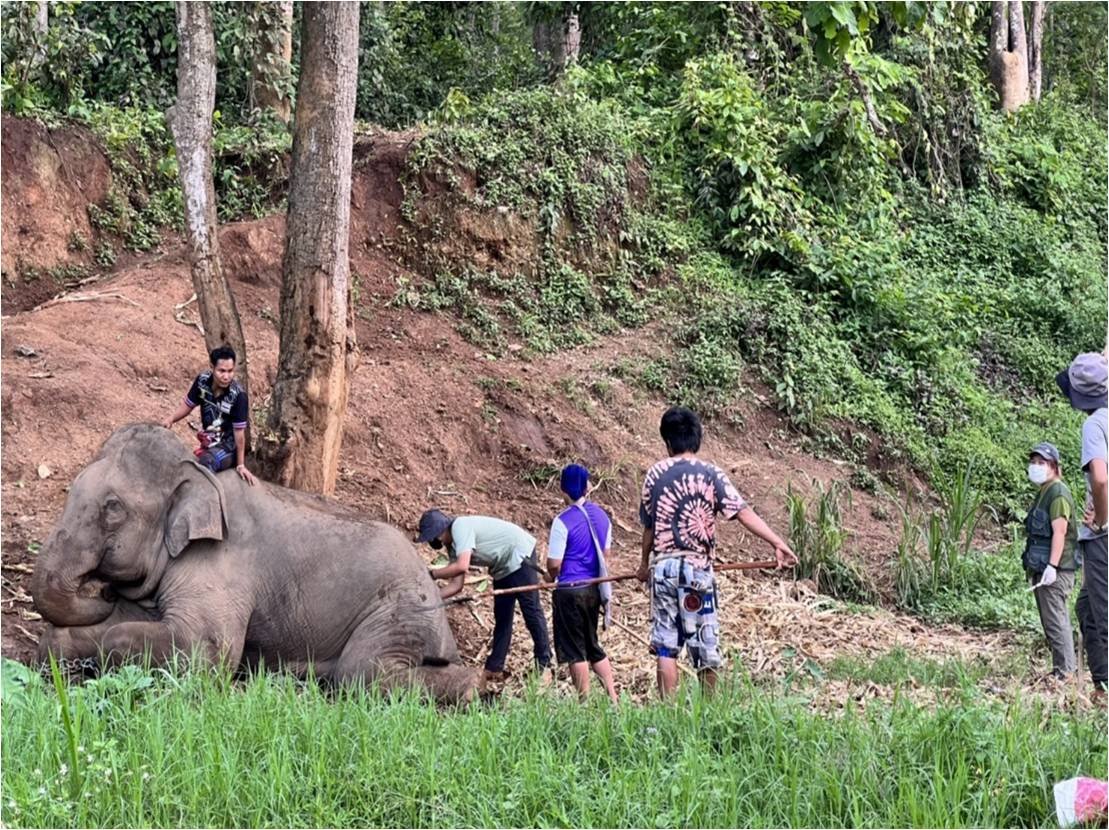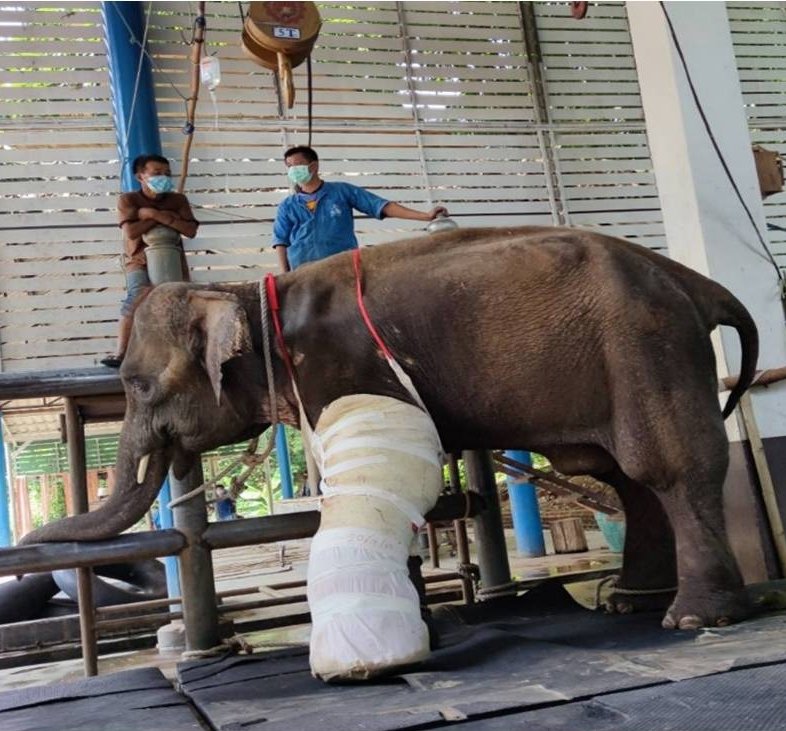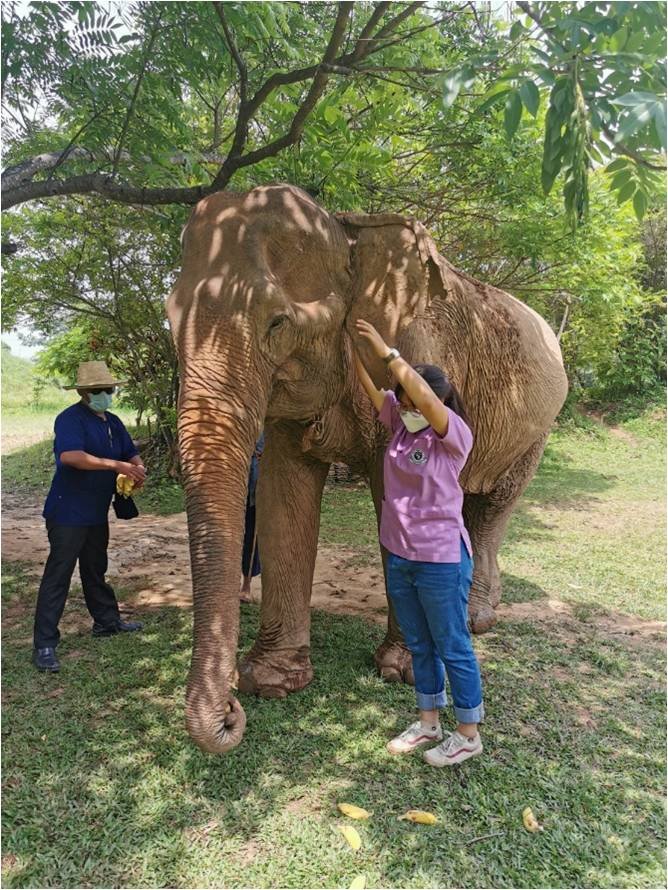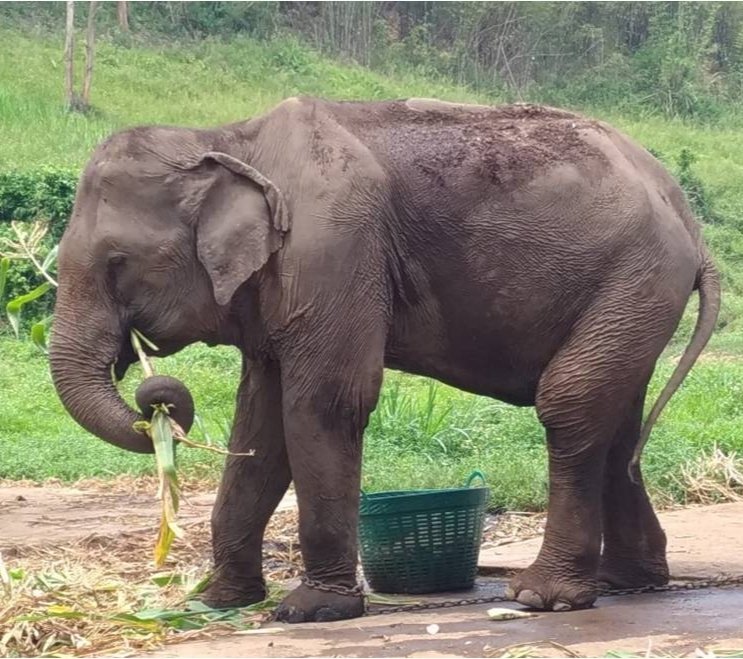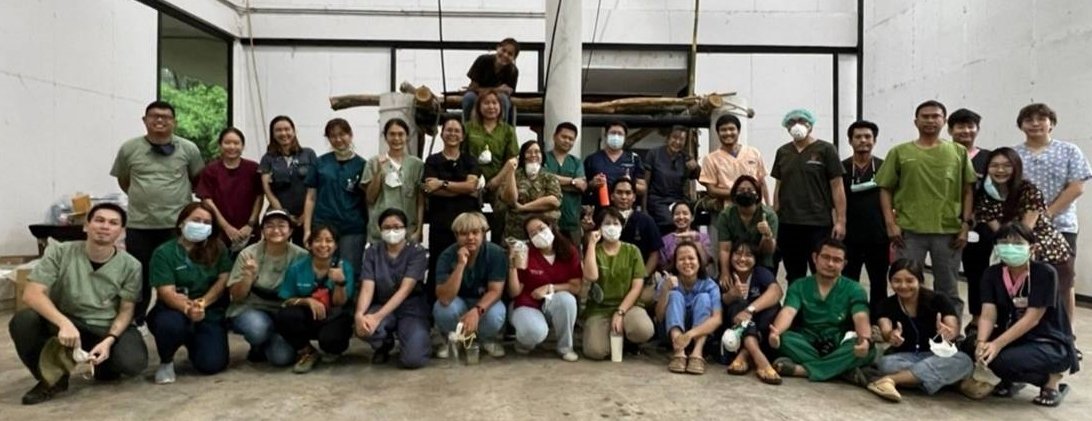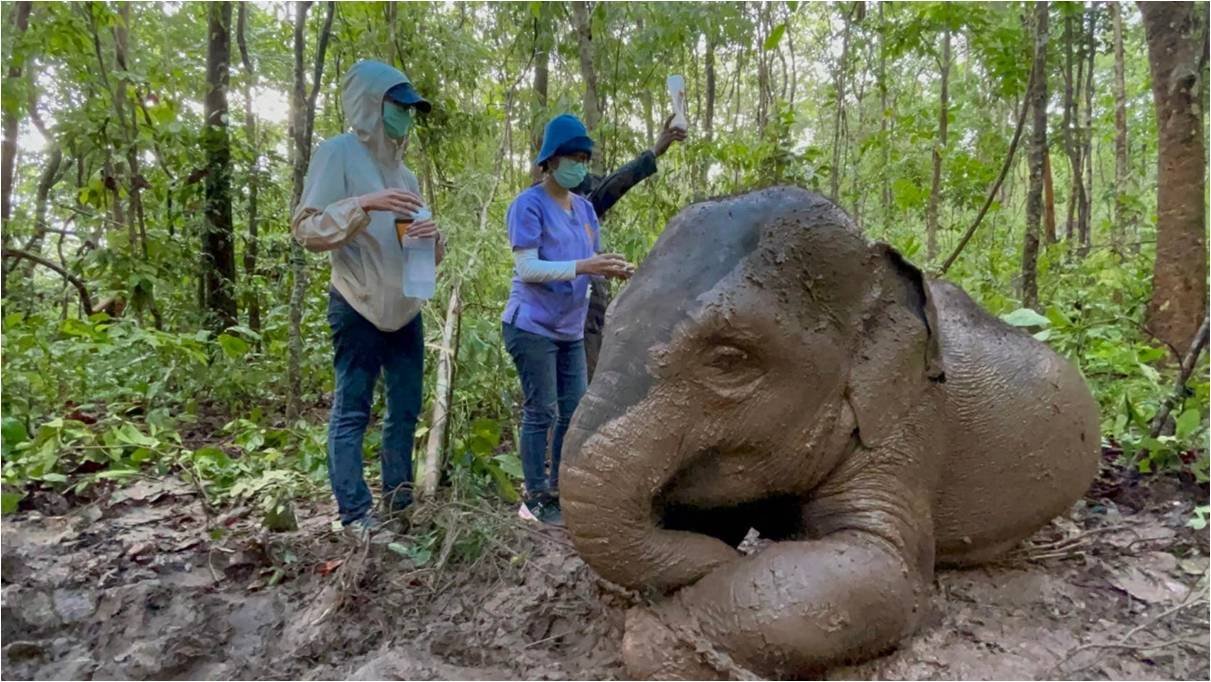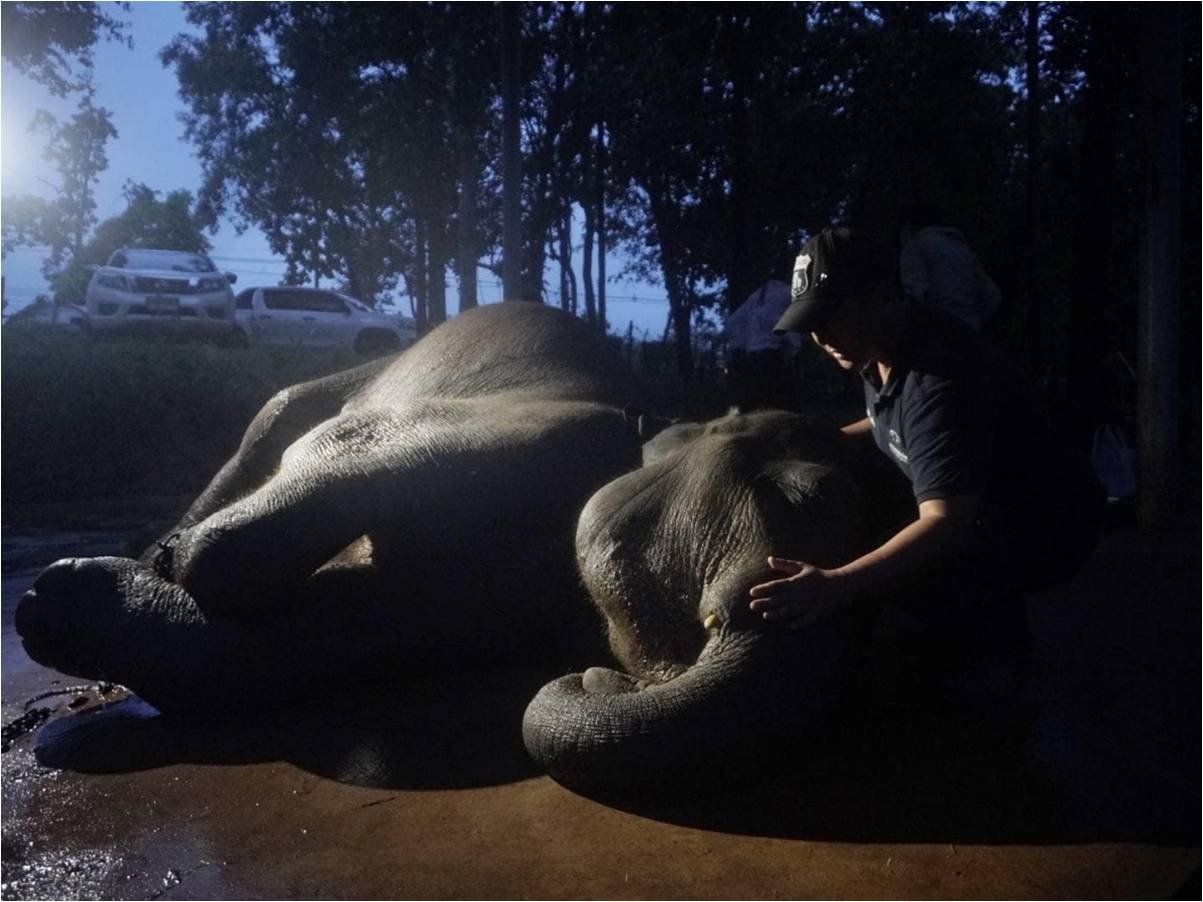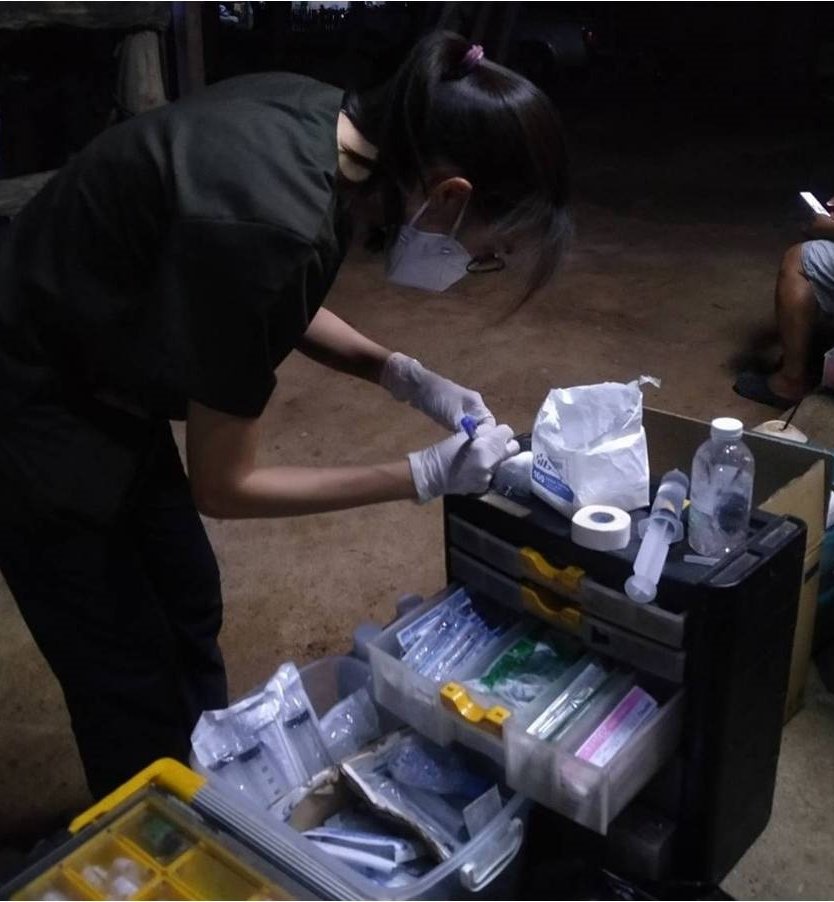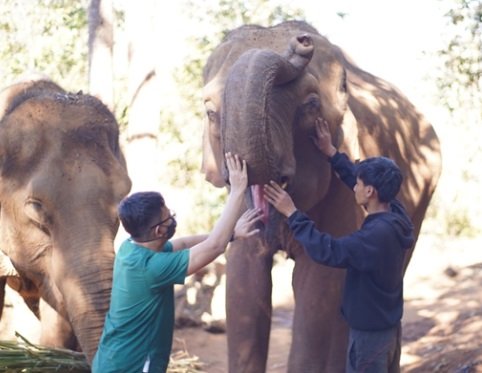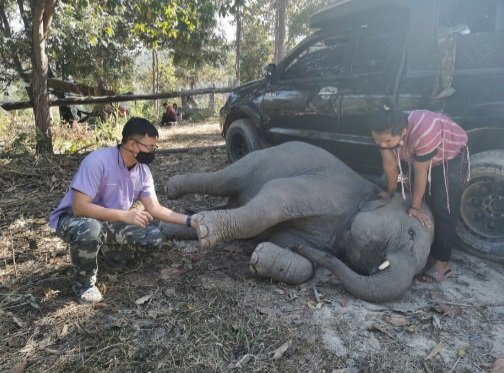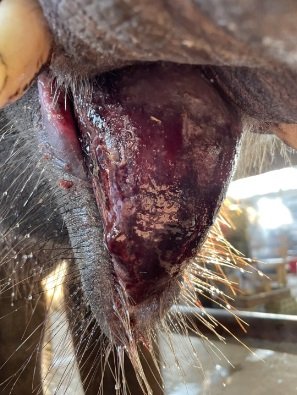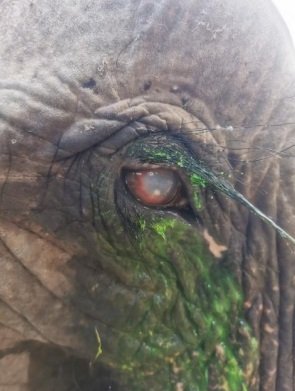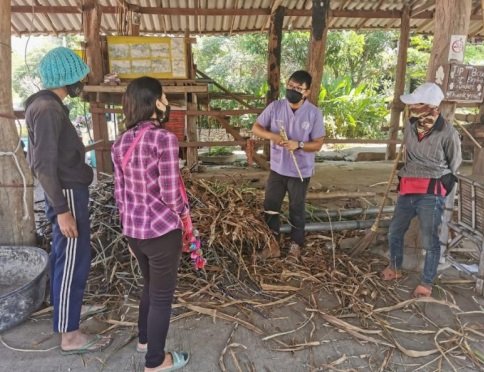Beginning in 2020, Asian Elephant Support committed funds to support the ongoing work of the Chiang Mai University Mobile Vet Clinic. This unit travels throughout northern Thailand to provide both preventative and emergency care for elephants in need. The staff from the unit regularly participates in educational opportunities to exchange knowledge with colleagues working to care for Asian elephants. We hope you continue to enjoy the updates we receive from our partners from the Mobile Vet Clinic and their work to uphold our mission to care for and conserve elephants in Thailand and across Asia.
The Chiang Mai University’s Mobile Vet Clinic team had another busy month in March. On the ninth and tenth, Drs. Kulnanan and Ueangpaiboon attended the Elephant Acupuncture Workshop organized by the Thai Elephant Conservation Center (TECC). During the workshop attendees were educated on traditional Chinese medicine, how to find and locate acupuncture points and which acupuncture points help. Workshop participants also had the opportunity to practice how to perform acupuncture on elephants.
"Acupuncture is another alternative treatment option for elephants to reduce pain & improve various health functions of the body based on the balance of energy flow or life force in the body." - Drs. Kulnanan and Ueangpaiboon
The CMU team joined in celebrating National Thai Elephant Day on March 13 by participating in a special event designed to raise awareness for elephants. At the event, religious rituals were performed, a feast was prepared for elephants, including grass and fruits, and attending organizations were invited to share their work to help elephants and other animals. For their part, the CMU team shared their work to deliver medication and care to elephants throughout the region, caring for wild elephants, improving the welfare for elephants, and assisting in care for calves with Elephant Endotheliotropic Herpesvirus (EEHV).
Elephants enjoying a feast of grasses & fruits on Chang Thai Day 2023
On the last day of the month, the Faculty of Veterinary Medicine at Chiang Mai University held a forum on how to manage cases of elephant calves with suspected EEHV. Over the last year, the CMU team had several cases of EEHV, sadly, in all of the cases the calves succumbed to the disease. This critical forum for veterinarians and students was designed to allow for an exchange of ideas on topics relating to EEHV, including the reporting of symptoms, the importance of assessments and lab work, and the delivery of critical treatments. The forum had over 30 attendees representing over 20 organizations, both in-person and via Zoom.
The forum was lead by experienced elephant veterinarians
Over the course of the month, the medical cases that Drs. Kulnanan and Ueangpaiboon and the team saw were vast. Mostly located in the Mae Wang and Mae Tang districts, they treated elephants with issues ranging from musculoskeletal, dental, eye and gastrointestinal issues.
On March third, the team was called to use their laser therapy unit for two elephants - a male with stiffness in his front leg and a female who had stepped on a nail and needed to have a needle aspiration followed by laser therapy. The CMU veterinary team is fortunately able to use laser technology as an additional treatment in some cases.
Dr. Eye drains & flushes the abscess. A week later the wound was better following the care from the CMU team & the elephant's dedicated owner
On March 15, the team visited an elephant owner who reported that his elephant had a swollen jaw for several weeks that had now formed an abscess. Upon examination, the veterinarians decided to open the abscess and clean it out with hydrogen peroxide and saline. A tetanus vaccine was also given. With the owner able to clean the wound very easily, one week later, the wound was better with little to no discharge present.
Later in March, the Mobile Vet Clinic visited a male elephant who had foamy discharge coming from his left eye. The owner had been treating the elephant for an eye ulcer for a few weeks already, and it seemed to be improving. However, during examination, the veterinary team found that the eye is now warm and swollen along with the foamy tears. They did a fluorescent stain on the eye to check for ulcers. Ultimately, a bulgy white protrusion about .5 cm in diameter was discovered.
Eye stain is applied to check for ulcerations
The elephant’s owner was instructed to keep the bull in a shaded area, provide topical antibiotic eye treatments three-four times a day and to keep the eye clean. The elephant was prescribed pain medication along with anti-inflammatory drugs. After a follow-up with this bull on March 30, he was found to be better, with less eye discharge, however the corneal protrusion was still present and follow-up care will likely be in order next month.
Elephants use their long lashes for protection from dust, light, wind and insects
As the care for elephants in northern Thailand continues each month, AES is proud to support the CMU Mobile Vet Clinic and all of their efforts to enhance their skills, share their knowledge and give the elephants of the region the best medical attention. We thank these partners for their service to the community and the species. To lend your support, consider making a donation by visiting our donation page or “Venmoing” @asianelephantsupport. Thank you.



